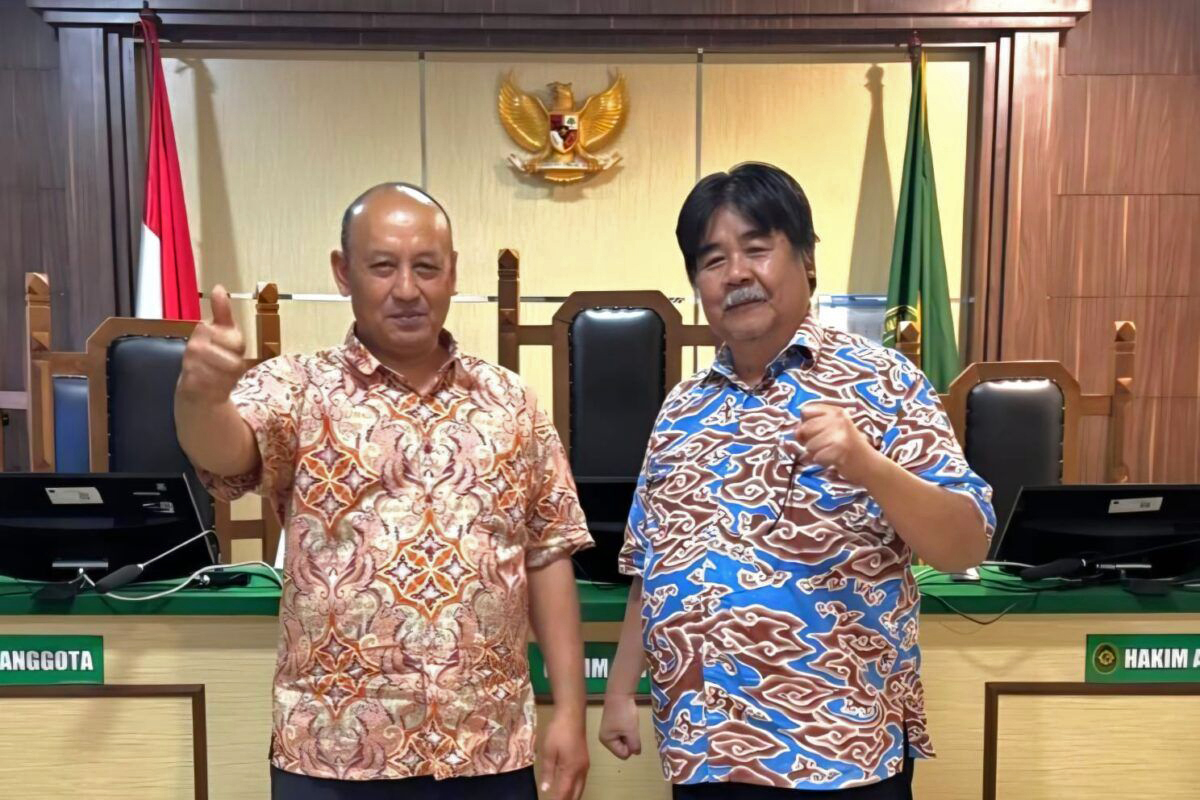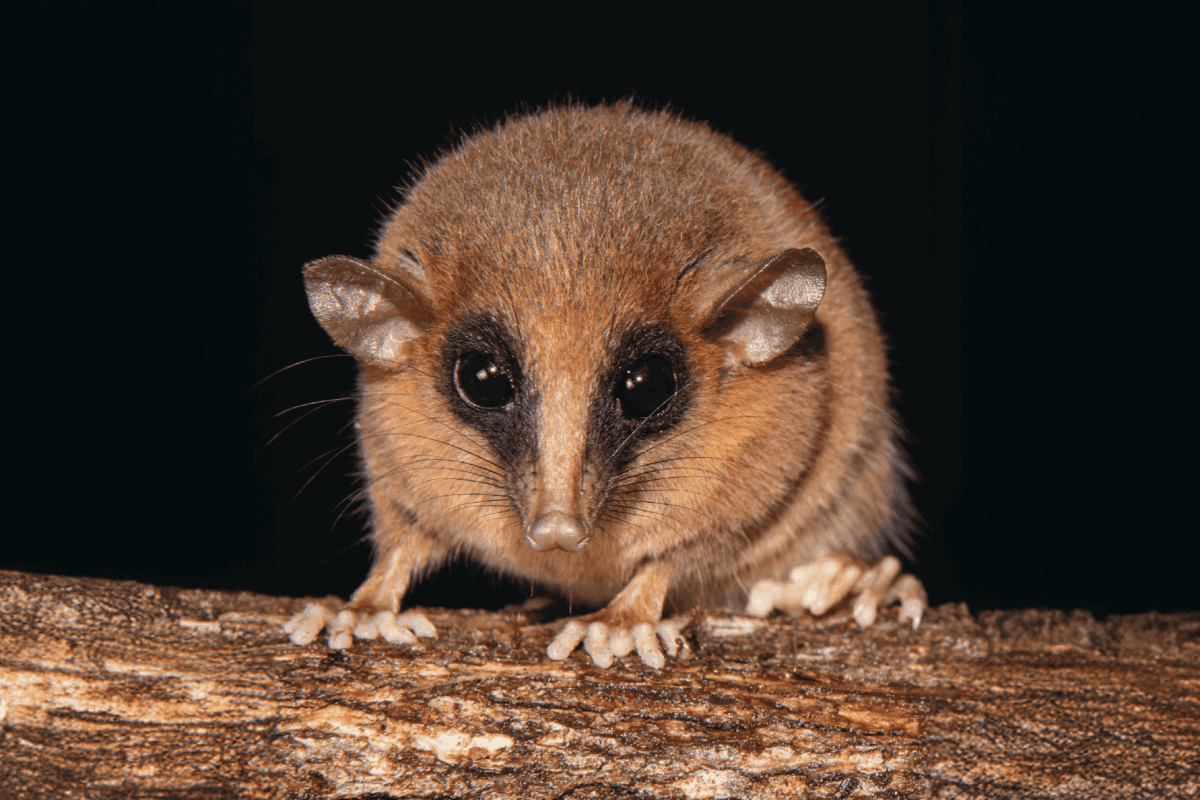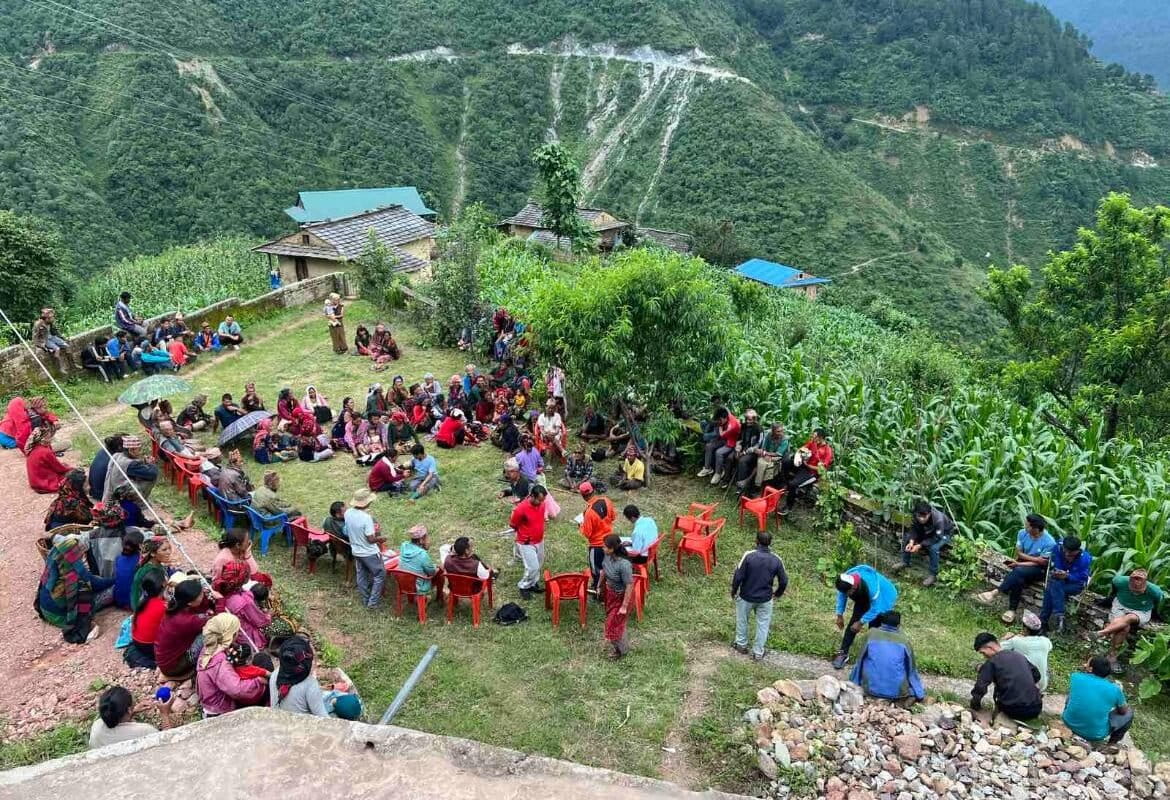- A district court in a Jakarta suburb has dismissed a lawsuit brought by palm oil company PT Kalimantan Lestari Mandiri against two scientists who provided expert testimony in a 2018 court case that found the palm oil firm liable for wildfires on hundreds of hectares of land in Central Kalimantan province.
- Bambang Hero Saharjo and Basuki Wasis, two professors at Bogor Institute of Agriculture, said defending the suit required time that could have been spent in the field or laboratory working to establish the facts in other cases.
- Civil society representatives responded to the ruling with relief. The heads of several nonprofits expressed hope that the verdict would provide reassurance to others that corporate actors had limited ability to use the courts against scientists.
A lower court in the Jakarta suburb of Bogor ruled in October in favor of environmental scientists Bambang Hero Saharjo and Basuki Wasis, dismissing a lawsuit brought by Borneo plantation firm PT Kalimantan Lestari Mandiri over a wildfire more than seven years ago.
“Hopefully this will set a good precedent to protect environmental defenders and activists and enable the effort to rescue the deteriorating environment without the threat of pressure and lawsuits,” Bambang told Mongabay Indonesia in response to the ruling.
Bambang and Basuki are professors at Bogor Institute of Agriculture, Indonesia’s premier forestry university. The government has frequently called on both academics to provide testimony as expert witnesses in wildfires cases brought by the forestry ministry against plantation companies.
In 2018, the Ministry of Environment and Forestry brought a case against PT Kalimantan Lestari Mandiri, which was heard in the Kapuas district court in Central Kalimantan province.
The government alleged the company was culpable for a fire covering 833 hectares (2,058 acres) using the principle of “strict liability,” which holds companies ultimately responsible for any damage.
In court, the government relied on peatland samples measured by Bambang, who is head of the wildfires laboratory at the Bogor Institute of Agriculture, from several sites on the PT Kalimantan Lestari Mandiri concession taken during November 2018.
The court judgment noted testimony that the area burned was approximately 833 hectares (2,058 acres), which was both Bambang’s conclusion and “in accordance with the results of measurements by the Central Kalimantan Provincial Plantation Service.”
The court found in favor of the government and ordered PT Kalimantan Lestari Mandiri to pay 210.5 billion rupiah ($12.7 million) and set aside 89.3 billion rupiah ($5.4 million) for environmental restoration.
PT Kalimantan Lestari Mandiri then unsuccessfully appealed the ruling all the way to Indonesia’s Supreme Court before unleashing a bid to pursue Bambang and Basuki in a district court an hour’s drive from the university where both professors teach.

Judges have found in Bambang’s favor in two previous lawsuits brought by plantation companies.
“If we keep getting sued like this, all our time will be spent dealing with lawsuits,’ Bambang told a press conference in July ahead of the ruling.
“Meanwhile, the environment will become increasingly neglected,” he said. “In the end, it won’t just be Jakarta that suffers, but all of Indonesia, even the world — because the environment is the lifeblood of the planet, and we must protect it together.”
Palm oil company vs. scientists
Ahead of the ruling, Edy Kurniawan Wahid at the Indonesian Legal Aid Foundation, a prominent civil society organization with offices throughout Indonesia, urged the court to take into account a 2023 Supreme Court ruling on adjudicating environmental cases.
Article 48 of the Supreme Court’s 2023 guidelines attends to public participation in environmental litigation and confirms rights of “submitting opinion, testimony or a statement in court” commensurate with the right to clean and healthy environment established in Article 28H of Indonesia’s 1945 Constitution.
Moreover, a 2009 environment law states no one can be prosecuted or sued in civil court for upholding the constitutional right to a clean and healthy environment.
“The more public participation there is in the effort to defend, maintain and protect the environment, the easier it will be to achieve sustainability of forests and a clean and healthy environment in Indonesia,” Basuki said.
Both professors thanked the environment ministry as well as the civil society organizations that coalesced to support the pair in the case brought by PT Kalimantan Lestari Mandiri.
“We hope this ruling will encourage other experts to boldly fight for environmental rights,” said Linda Rosalina, executive director of Transformation for Justice, known as TuK, a forestry nonprofit.

Boy Jerry Even Sembiring, the newly elected national director of the Indonesian Forum for the Environment, known as Walhi, Indonesia’s largest environmental campaign group, said the ruling by the Cibinong district court had blocked a potentially damaging blow to the rule of law in the environmental arena.
“Overall, this is a victory for the environment,” Boy said. “This ruling will build confidence in all of us.”
In 2023, Walhi filed a new complaint against PT Kalimantan Lestari Mandiri with the environment ministry over a fire in 2023 that burned around 2,000 hectares (nearly 5,000 acres).
Analysis by research group Pantau Gambut concluded fires had burned 3,472 hectares (8,578 acres) of PT Kalimantan Lestari Mandiri in multiple years, while the company had not complied with the court’s land restoration order.
Courts across Indonesia have fined plantation companies more than 21 trillion rupiah ($1.3 billion) combined for forest and peatland fires, although only a fraction of that amount has been paid.
“The court must immediately execute the verdict against KLM [PT Kalimantan Lestari Mandiri],” said Okto Yugo Setiyo, director of nonprofit Jikalahari. “And all forest-burning companies whose verdicts have been final and binding.”
Indonesia’s Environment Minister Hanif Faisol Nurofiq called the lawsuit “a form of Strategic Lawsuit Against Public Participation” and expressed hope that the ruling would deter any further “attempts to criminalize witnesses, reporters, experts or activists” in an Oct. 9 statement.
“This decision demonstrates the judiciary’s commitment to the cause of a clean, healthy and sustainable environment, long championed by environmental experts and advocates,” the minister said.
Banner image: Bambang Hero Saharjo and Basuki Wasis, two environmental scientists from IPB University, after the first hearing of their lawsuit in the Cibinong District Court, West Java, July 1, 2025. Image by Richaldo Hariandja/Mongabay Indonesia.
This story was first published here in Indonesian on Oct. 12, 2025.



